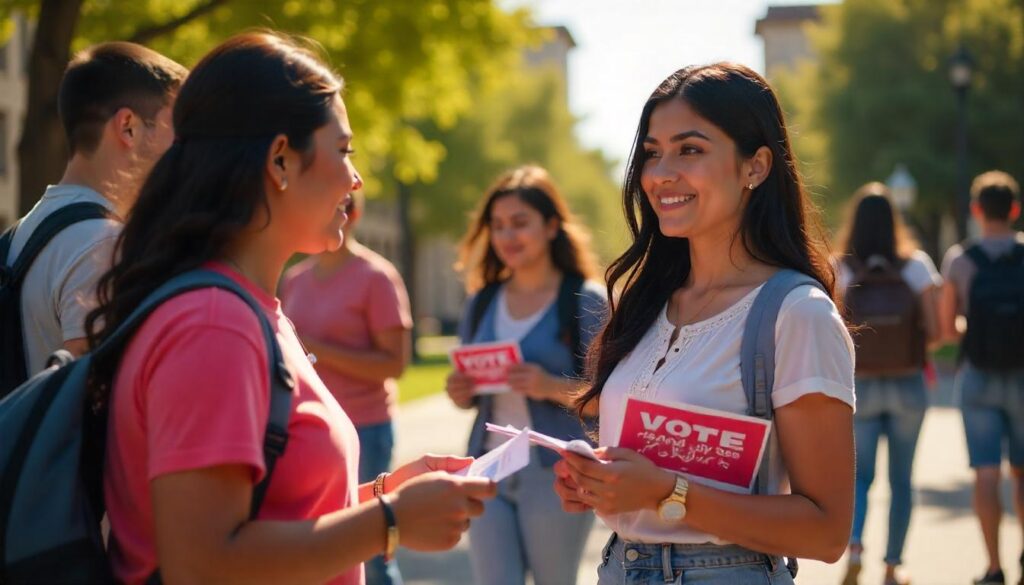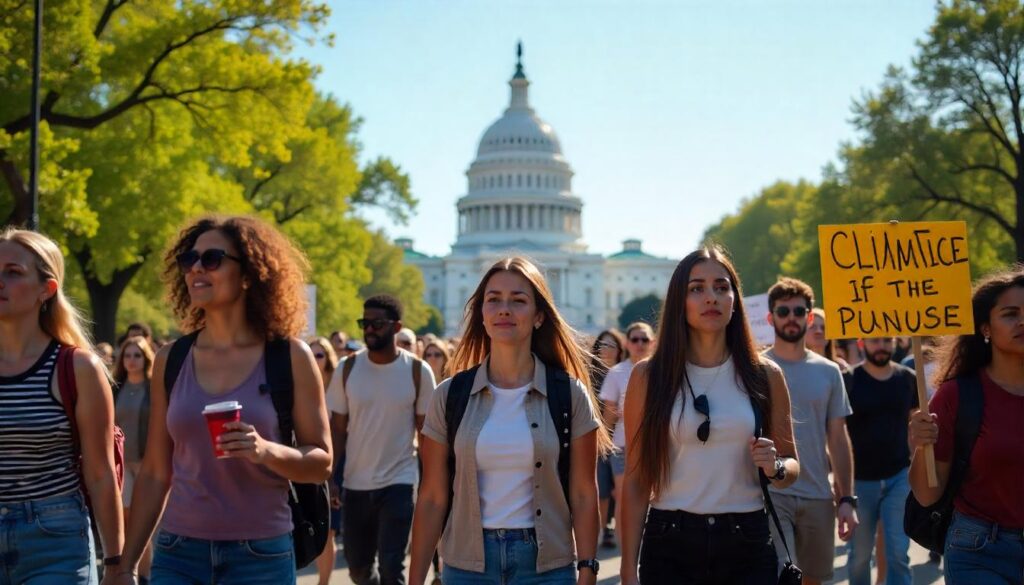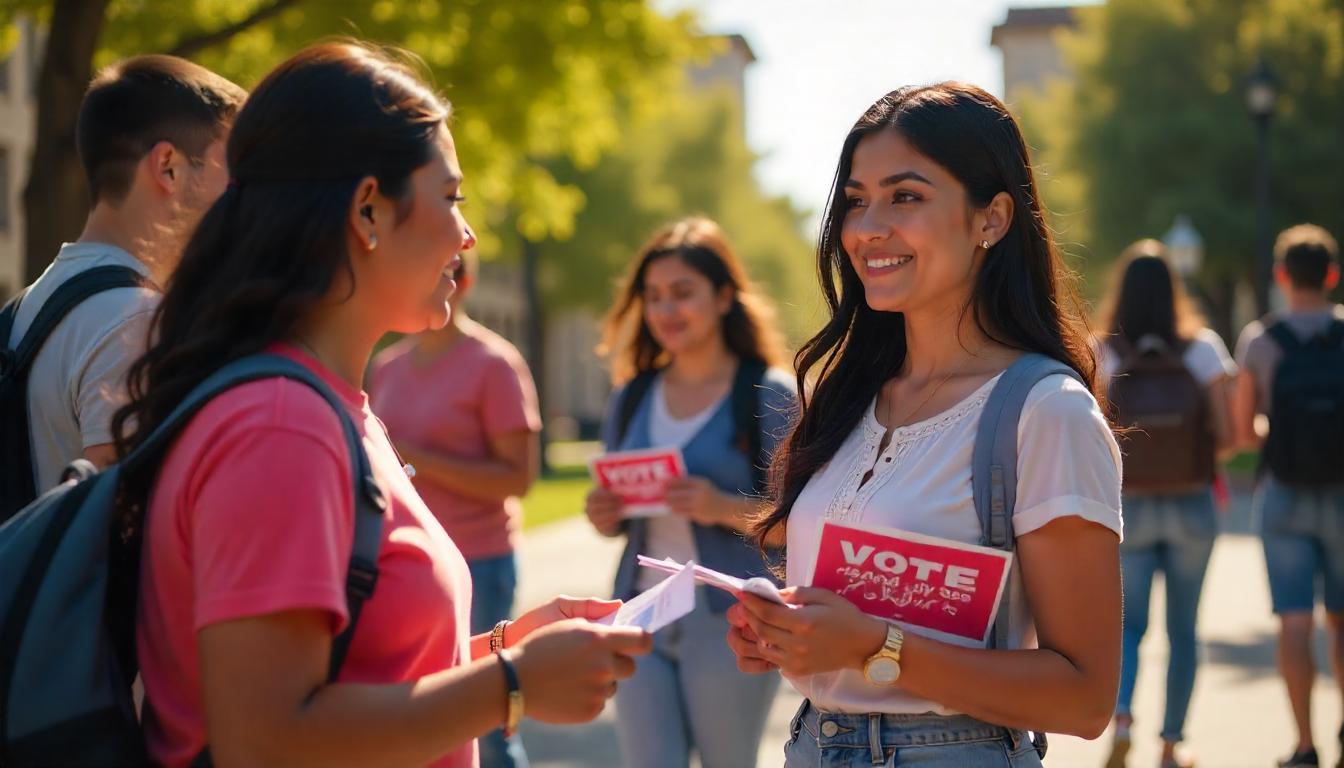
In 2025, Generation Z (born between 1997 and 2012) is emerging as a formidable force in the political arena. With their unique perspectives, technological prowess, and commitment to social justice, Gen Z is reshaping leadership and activism. This article explores how Gen Z is influencing politics, the strategies they employ, and the challenges they face.
The Rise of Gen Z in Politics
A Generation Defined by Activism
Gen Z has grown up amidst global challenges like climate change, social inequality, and political polarization. These experiences have fostered a generation deeply committed to activism and political engagement. According to a survey by United Way NCA, nearly one-third of Gen Zers are regularly involved in activism or social justice work, surpassing the engagement levels of previous generations.
Voting Trends and Political Participation
Despite their activism, Gen Z’s voter turnout has been inconsistent. In the 2024 U.S. presidential election, approximately 42% of voters aged 18 to 29 cast their ballots, a decrease from previous years. This highlights a gap between activism and formal political participation that needs addressing.
Key Drivers of Gen Z Political Engagement
Social Media Influence
Social media platforms like TikTok, Instagram, and Twitter serve as primary tools for Gen Z to disseminate information, mobilize support, and engage in political discourse. This digital engagement has given rise to new forms of activism and leadership.
Desire for Authenticity and Representation
Gen Z values authenticity and seeks leaders who reflect their experiences and values. This has led to increased support for candidates who prioritize transparency, inclusivity, and progressive policies.
Digital Activism: The New Frontier
Online Campaigns and Movements
Gen Z leverages digital platforms to initiate and support campaigns on issues ranging from climate change to racial justice. These online movements often translate into real-world actions, demonstrating the power of digital activism.
Challenges of Digital Activism
While digital activism has expanded reach, it also faces criticisms of being performative. A study by United Way NCA found that while many Gen Zers engage in online activism, translating this into offline action remains a challenge.
Youth-Led Political Movements in 2025

Association of Students for Alternative Politics (ASAP)
In India, the Aam Aadmi Party launched ASAP to encourage student participation in politics, focusing on governance and educational reform.
Leaders We Deserve
In the U.S., activist David Hogg’s organization, Leaders We Deserve, supports progressive candidates, emphasizing the need for generational change within the Democratic Party.
Emerging Gen Z Political Leaders
Maxwell Frost
Maxwell Frost made history as the first Gen Z member of the U.S. Congress, representing Florida’s 10th district. His election signifies the growing political influence of Gen Z.
David Hogg
Beyond activism, David Hogg serves as vice chair of the Democratic National Committee, advocating for progressive reforms and increased youth participation in politics.
Challenges and Criticisms
Political Polarization
Gen Z faces internal divisions, with some members leaning conservative and others progressive. This polarization reflects broader societal trends and poses challenges for unified political action.
Institutional Trust
Many Gen Zers express skepticism towards traditional political institutions, seeking alternative avenues for engagement and change.
Conclusion
Gen Z is redefining political engagement through digital activism, grassroots movements, and a demand for authentic leadership. While challenges persist, their influence is reshaping the political landscape, signaling a shift towards more inclusive and responsive governance.
FAQs
Q1: What distinguishes Gen Z’s approach to politics?
Gen Z emphasizes digital engagement, authenticity, and social justice, often utilizing social media to mobilize support and drive change.
Q2: How does Gen Z’s voter turnout compare to previous generations?
While Gen Z is highly active in activism, their voter turnout has been lower compared to older generations, highlighting a need for increased civic education and engagement.
Q3: Who are some notable Gen Z political leaders?
Maxwell Frost, the first Gen Z member of the U.S. Congress, and David Hogg, vice chair of the DNC, are prominent figures representing Gen Z in politics.
Q4: What challenges does Gen Z face in political engagement?
Challenges include political polarization, skepticism towards institutions, and translating online activism into tangible political outcomes.
Q5: How can Gen Z increase their political influence?
By participating in elections, engaging in community organizing, and holding leaders accountable, Gen Z can amplify their impact on the political landscape.
